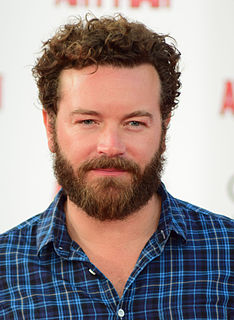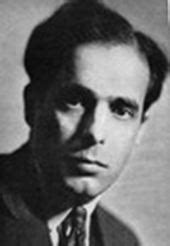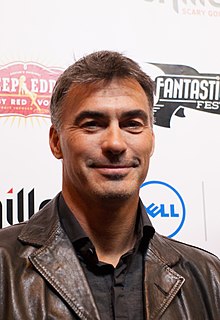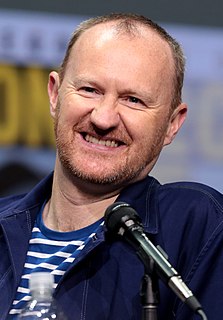A Quote by Danny Masterson
When you have another actor as your boss, they understand how to communicate easier sometimes than just a writer.
Related Quotes
I am working in my office. I've got a boss who tells me what to do. He's got a boss who tells him what to do. And above him is another boss who probably is telling my boss in the same way - or my boss' boss in the same way what to do. In actuality, this is not the way things work. Management science says that that kind of a chain doesn't work more than three levels up.
Writer-directors are a little bit more liberal, rather than having just the writer on the set, because I think sometimes the writer becomes too precious with the words. If you're a writer-director, you can see what you're doing and see your work in action, so I think you can correct it right there and still not compromise yourself.
You have to understand who you are and figure out a way to communicate it. It might be in a different industry, but it's about what pumps the blood through your veins, what makes you excited, what pushes your buttons. And then discovering the best way to communicate that, no matter how big or small; it's what you stand for, what you believe in, and what reflects who you are.
The visual stuff just lives inside of you. As far as really being able to take care of an actor on a set, how to talk to an actor, and how to get what you need out of a scene is probably where I might know a thing or two. Although, in TV, the actors are pretty much left alone. It's really the writer's medium more than anything.
Every work is completely different. Sometimes the music is first, sometimes it's parallel, and sometimes the music is after. There's no rule. Music goes differently to your emotions. With music you can create different spaces and feelings easier than you can with the visual - maybe not easier, but in a way, it's more seductive.
If the boss is a jerk, get over it. First of all, don't you think there's a good chance that your boss's boss knows what's going on? If so, just keep your head down and do the work. Usually, if you put in maximum effort and produce excellent results, someone in the company is going to take notice. Either you will get promoted or your jerky boss will get the heave-ho. It happens all the time.




































